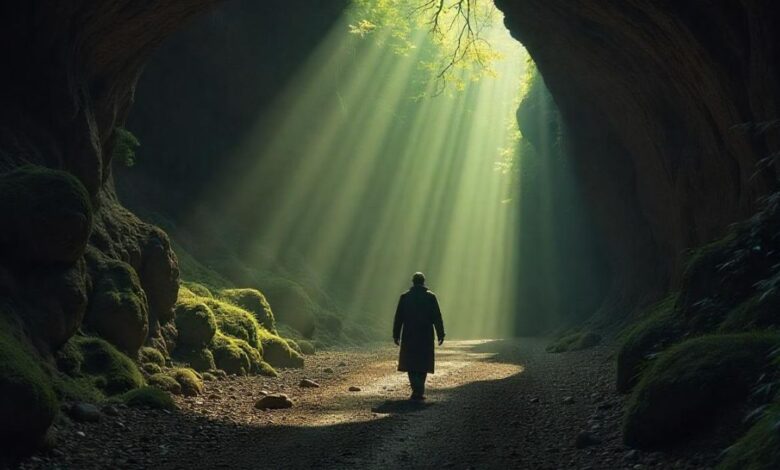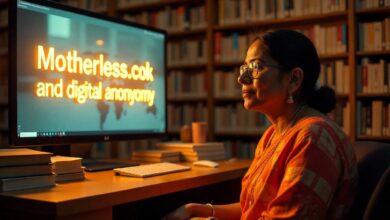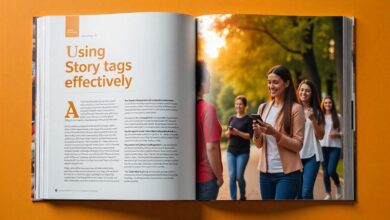Unveiling Forgotten Echoes: A Journey Through the Hidden Depths Kirstin Archives

In a quiet corner of the internet, far from trending headlines and algorithm-fed timelines, lies a digital relic cloaked in obscurity and nostalgia—The Kirstin Archives. Though rarely mentioned in mainstream circles, this enigmatic repository of thoughts, memories, and fragmented records holds something deeper than mere content. It is a time capsule of raw human expression, documenting both personal and cultural evolution over years lost to the speed of modern life.
What started as a small personal project has become a mysterious presence online, drawing in curious digital archaeologists, researchers, and those seeking connection in the quiet between clicks. But what exactly are these archives? And why do they still resonate, years after their original creation?
The Rise of Digital Diaries
In the early 2000s, the internet was a different place. Before the age of influencers, SEO strategies, and curated aesthetics, the digital world was a blank canvas. It was a space for people to carve out personal spaces—blogs, forums, and diaries that reflected their thoughts, moods, and lives in all their messy authenticity.
Among these spaces emerged countless anonymous creators, pouring pieces of themselves into web pages designed not for fame but for expression. One such creator was the elusive “Kirstin,” whose meticulous and reflective entries would go on to form what we now know as The Kirstin Archives.
These weren’t just journal entries. They were literary reflections, capturing a moment in time through personal perspective—offering readers something strangely rare today: truth without filters.
Tracing the Footprints of Identity
Reading through these archives is like following footprints on a foggy path—you’re never quite sure where you’re going, but each step reveals a little more about the person who walked it. Kirstin, though never fully identified, appears to be a writer shaped by solitude and subtle rebellion. Her voice is intelligent, warm, and self-aware, grappling with themes that remain universally human: identity, grief, creativity, loneliness, and hope.
Her prose isn’t polished to perfection, and that’s its strength. It reads like conversation—not staged monologue. The archive spans over a decade of posts, interspersed with poetry, correspondence, old web clippings, and even moments of silent hiatus that speak as loudly as the entries themselves.
While the entries are deeply personal, there’s an almost uncanny relatability that echoes within readers. In her specific experience, Kirstin touches on something collective: what it means to be seen, to remember, and to continue evolving even when the world doesn’t notice.
The Internet’s Lost Places
The modern internet moves quickly. Viral trends come and go in hours. Long-form reflections are often lost beneath the noise of short-form media. But the existence of spaces like The Kirstin Archives challenges that pace.
There’s a quiet power in long-forgotten web pages and abandoned blogs. These digital ghost towns aren’t failures—they are markers of an internet that once cherished depth over virality. More than ever, there’s a growing cultural interest in rediscovering these spaces. They remind us that meaning doesn’t always need momentum. Sometimes, it needs patience.
Archive enthusiasts, digital librarians, and cultural researchers are increasingly revisiting personal blogs and early internet creations, treating them as living literature. And while many sites vanish into the void of expired domains and unrenewed servers, some—like Kirstin’s—are preserved, either intentionally or by lucky accident.
Digital Archaeology and Emotional Resonance
The act of unearthing an archive like Kirstin’s is more than nostalgia—it’s emotional archaeology. Each post acts as a digital artifact, helping us understand not just the author, but also the era in which she wrote. Technology changes, but emotional truths don’t.
From the haunting entries written during moments of isolation to the small, radiant victories documented in passing, there’s an undercurrent of resilience in her writing. It’s no wonder that readers who stumble upon the archive often find themselves returning—drawn in by the raw sincerity so lacking in today’s carefully crafted digital personas.
For writers, it’s a masterclass in authentic voice. For mental health advocates, it’s a deeply honest account of emotional survival. For cultural critics, it’s a window into the internet’s forgotten past.
Why Stories Like This Matter Today
In an age where AI generates essays and social media molds identities, returning to something like The Kirstin Archives feels revolutionary. It reminds us that the internet wasn’t always about performance—it was about connection. It was a place to be, not just broadcast.
There’s a growing movement—especially among Gen Z and younger Millennials—toward “digital decluttering,” analog journaling, and seeking slower, more intentional content. The rise of Substacks, personal newsletters, and micro-journaling platforms shows a desire to return to more thoughtful expression.
In this cultural shift, Kirstin’s writing feels not just relevant, but prophetic. She anticipated the burnout of performative life long before it became a trend.
The Future of the Forgotten
The preservation of internet history is an ongoing concern. Projects like the Wayback Machine and digital preservation initiatives help retain some of this cultural memory, but much is still at risk of being lost forever.
If The Kirstin Archives teach us anything, it’s that every voice has value—even those never meant for the spotlight. Each entry in the archive is a testament to the enduring human need to document, reflect, and share. And in preserving these voices, we preserve part of ourselves.
So perhaps the question isn’t “Who was Kirstin?” but rather: “What part of her lives on in all of us?”
Conclusion: A Quiet Legacy
The Kirstin Archives may never trend on Twitter or go viral on TikTok—but they were never meant to. Their strength lies in quiet endurance. In a world desperate for attention, Kirstin gave us something far more valuable: permission to be honest, unpolished, and human.
Her archive, intentionally or not, offers a roadmap for reclaiming meaning online. For every reader who stumbles across it, it feels like finding a handwritten letter in a digital age—a relic of care, crafted slowly and with love.



